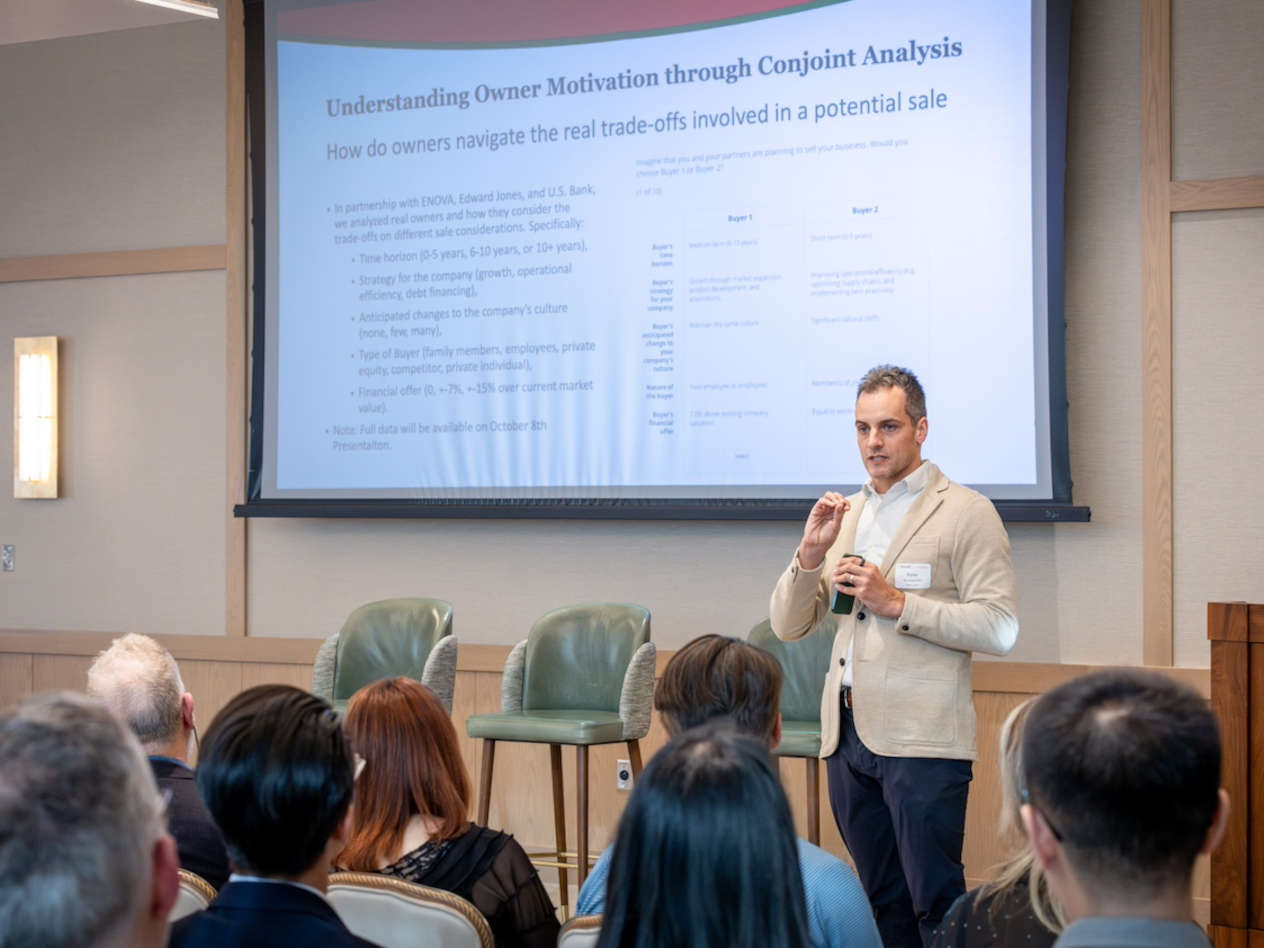Coming October 8: Olin Brookings Commission to release findings about small business ownership transitions
- September 27, 2024
- By Jill Young Miller
- 3 minute read

Small and medium-sized businesses—the backbone of America’s economy—employ over 130 million workers. The businesses, however, are undergoing a massive change because baby boomers, born between 1946 and 1964, own many of them.
As boomers retire, an estimated $100 trillion in small and medium-sized businesses will transfer to new owners or be inherited or sold. The wave of ownership transitions, the so-called “silver tsunami,” will profoundly affect the economy and local communities.
Peter Boumgarden leads the WashU Olin Brookings Commission and directs Olin's Koch Center for Family Enterprise. “This impending shift raises important questions: What types of ownership are these businesses moving toward?” he said. “How will these changes affect the broader economy and the communities where these businesses operate?”
With support from the Bellwether Foundation, the commission has been researching those topics and more for months.
Boumgarden revealed some research insights on September 25 at a “sneak peek” event for business owners, investors, and others, including Olin students, at the St. Louis Club in Clayton, Missouri. He also recently shared the commission’s initial findings with policy advisors from the U.S. Senate Committee on Small Business & Entrepreneurship.
Investors: The employee ownership model tends to be less aggressive than other models across most areas, or “strategic levers,” except in its focus on improving incentives. Private equity firms focusing on small and medium-sized businesses are perceived as more aggressive in using larger PE investors' strategies. The primary exception is their lower likelihood of bringing in a strategic investor, probably because of smaller deal sizes.
Owners: The financial value of an offer for a business is paramount. Yet, despite the importance of monetary value, a combination of other factors—buyer type, timeline, and cultural implications—can sometimes override a higher price offer. Owners are especially wary of selling to buyers who are competitors or who plan to institute significant changes in the company culture.
Employees: Ownership transition is difficult for employees, especially for those who leave the firm, voluntarily or not. Some transitions are more employee-friendly than others. For instance, when a competitor acquires a company, employee self-rated job quality declines, with no recovery by the fifth year.
On October 8, the commission will present its complete findings and policy recommendations at a live and virtual event at the Brookings Institution in Washington, D.C.: Main Street’s Tidal Wave of Transition. The study identifies strategies various investors use in the small business market, codifies trade-offs involved in business ownership transitions, clarifies how different ownership structures affect workers, and highlights critical policy implications.
Collaborations with capital firms connected to the business owner community, including ENOVA International, Edward Jones, and U.S. Bank, facilitated data collection for the study.
Jason Bean, EMBA 2023, is the managing partner of Arch Capital Group, a boutique investment bank based in Clayton, and attended the sneak peek event. About 90% of his banks’ client engagements involve privately held or family-founded companies.
He said what he heard at the event aligned with questions clients frequently ask about the benefits of different types of transitions. He looks forward to finding out more.
“I have seen firsthand the importance of research around family enterprises,” he said. “We are in the early stages of a massive transition, with many privately held businesses facing the decision of passing on to the next generation or being sold outright.”
Rob Davidson, a Flex MBA student at Olin, is a prospective “entrepreneur through acquisition” who attended the event.
“I'm incredibly impressed with the resources that the Koch Center for Family Enterprise makes available to students and St. Louis as a whole,” he said. “Supporting current and future small businesses is essential to ensuring the continued growth of our shared communities.”
Media inquiries
For assistance with media inquiries and to find faculty experts, please contact Washington University Marketing & Communications.
Monday–Friday, 8:30 to 5 p.m.
Sara Savat
Senior News Director, Business and Social Sciences
